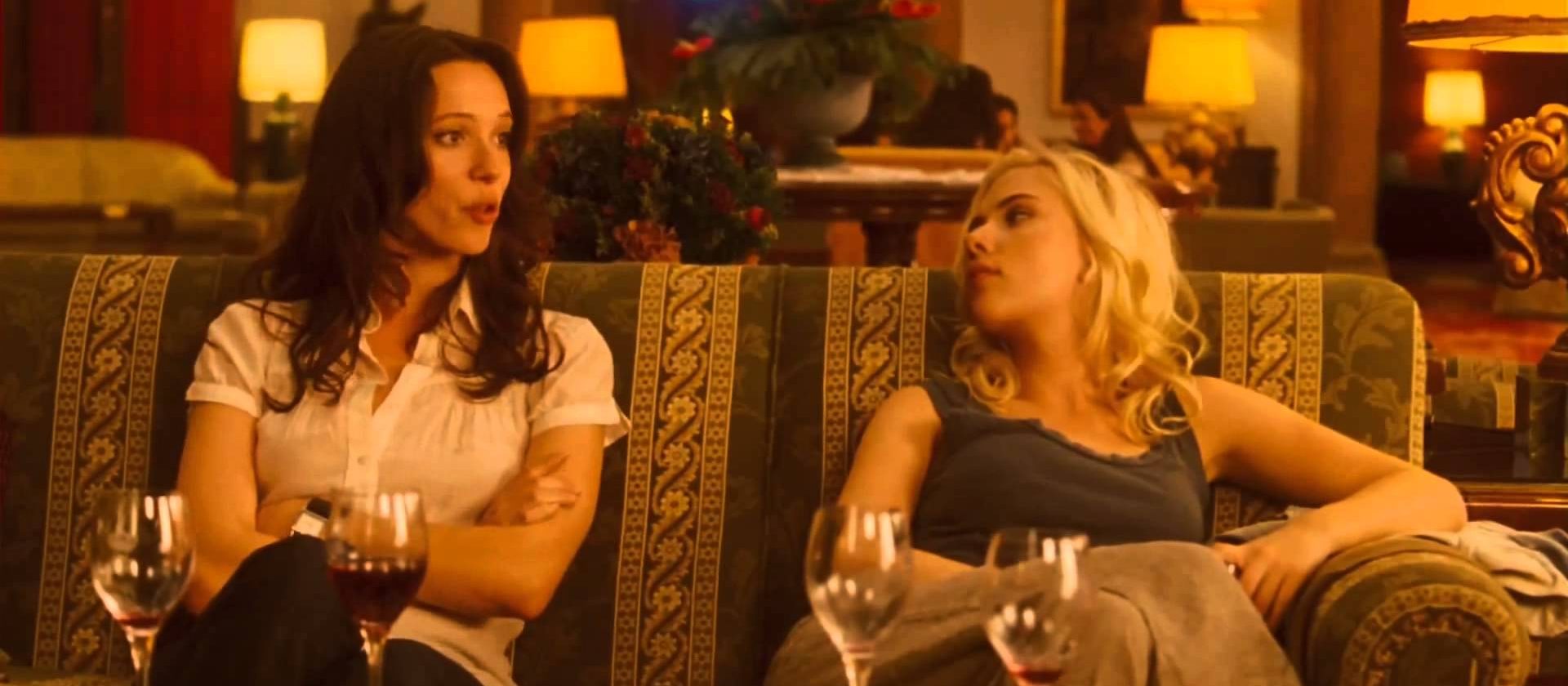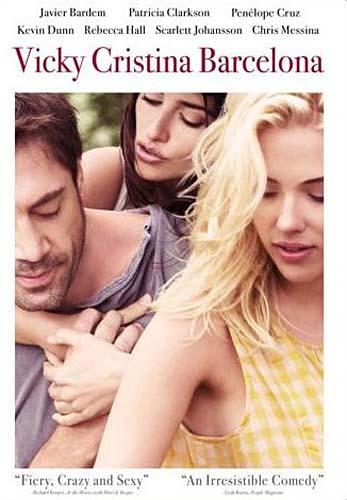

“María Elena used to say that only unfulfilled love can be romantic.”
When asked at a Cannes press conference why he chose to shoot a film in Barcelona, Woody Allen responded by saying, “Really because people from Barcelona called and asked me if I would be interested in making a film there. They would finance it. I said, ‘Sure.’ I love Spain; I love Barcelona… so I wrote something I could shoot in Barcelona.” If only we could all be so forthright. Unfortunately, the workmanlike attitude apparent in Allen’s response is also evident in the finished product, a roughly sketched narrative tracing Vicky (Rebecca Hall) and Cristina’s (Scarlett Johansson) summer vacation in Spain and their chance affair with an enigmatic painter (Javier Bardem) and his ex-wife (Penélope Cruz). The performances are nice, but cloying narration, shallow characters, and a weak story prevent Vicky Cristina Barcelona from becoming anything more than an aimless business transaction—albeit one that serves as a decent little advert for Barcelona with its abundance of scrumptious food, exquisite wine, and empty sex.
Vicky and Cristina are immediately presented as opposites. Vicky is engaged to be married to Doug (Chris Messina) and looking forward to conducting some research for her graduate degree in Catalan Studies (aside: how does one determine that they want to begin a graduate degree studying a Spanish culture if they haven’t learned some Spanish? I told you the characters were shallow). She’s unwavering in her traditional sensibilities—she’s planned her monogamous future and intends to put her time in Barcelona to productive use. Cristina, on the other hand, is thoughtlessly treading water in a lifelong quest to find herself through spontaneous romance and photographs of tourist-friendly locales. She’s sucked in by the ambience of the cosmopolitan city and believes every chance encounter is pregnant with magic. But neither is certain of themselves. Though Vicky’s hackles are raised when Juan Antonio (Bardem) approaches the ladies at dinner and promptly proposes a threesome, she will eventually find herself pining for an affair with the mysterious painter. Conversely, after Cristina is ensnared by the bon vivant’s bold seductions, she discovers that she might be content in a committed relationship. An omniscient narrator (Christopher Evan Welch) briefly informs us of the best friends’ clashing personalities in the early going—a decision which kneecaps much of the potential drama by foisting half-baked characters upon us and forgoing the hard work of efficient storytelling.

In short order, both women have been taken to bed by the lascivious artist, but neither can truly compete for the man’s heart because it’s already claimed by his ex-wife María Elena (Cruz), a suicidal spitfire that makes her first appearance about halfway through. Vicky throws herself into her research to bury her shame and guilt while Cristina moves in and plays third wheel to Juan Antonio and María Elena as they briefly enjoy life together as a bohemian trio. Cruz and Johansson blithely engage in a debaucherous smooch-sesh in the red light of the latter’s darkroom. After these sketchy caricatures meander through their spotty vignettes, spouting Woody Allen’s patented stilted dialogue and looking at one another with lust, things begin to peter out. Then María Elena busts up any remaining plot threads by launching a few pistol rounds toward her ex-husband and his flavor of the month.
At bottom, though, the issue is not the chipper narration or the weak narrative, but the characters that Allen thrusts upon us. With the possible exception of Vicky—though her moral posturing may make her even worse because she is a regular adulteress—our main characters are shallow, self-indulgent narcissists. Egomaniacs each looking to fulfill their lust or generate a fresh desire for something new. And since these characters are given no backstory, and thus no reason to change—indeed, the “plot” resolves by each character reverting to their initial state—we cannot engage with anything except in a vacuum. As I’ve said, the performances are nice, especially from Cruz (who won some awards for her role). Johansson is okay but probably fits the shallow tone of the film a little too well. Bardem is good but given little to work with. And Hall does a splendid feature length Woody Allen impression. But without the sardonic witticisms that come with Allen’s best work, his characters come across as faux-aesthetes, the kind of people that Allen makes fun of on his best days, but acts like on his worst.